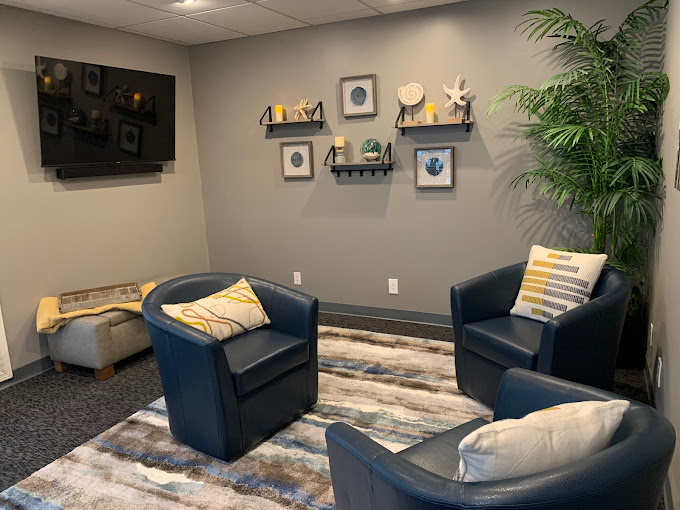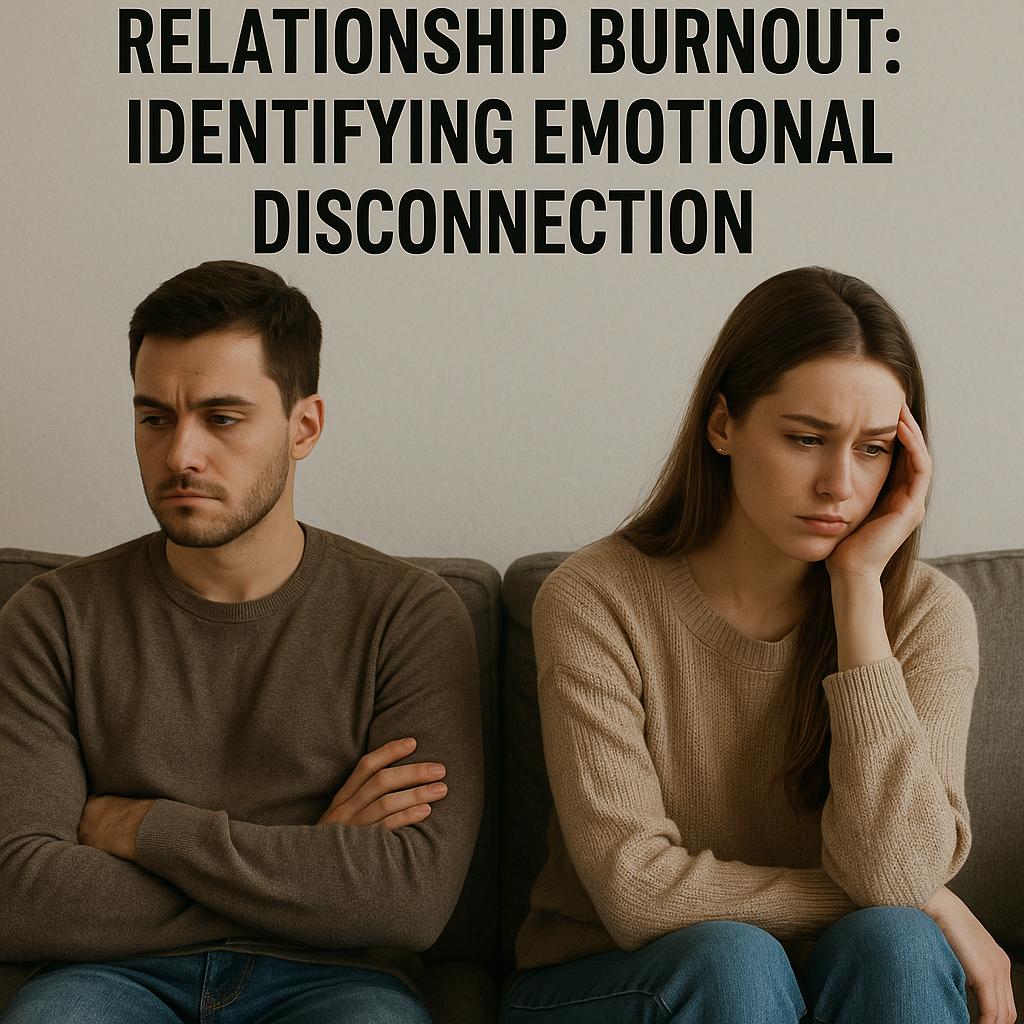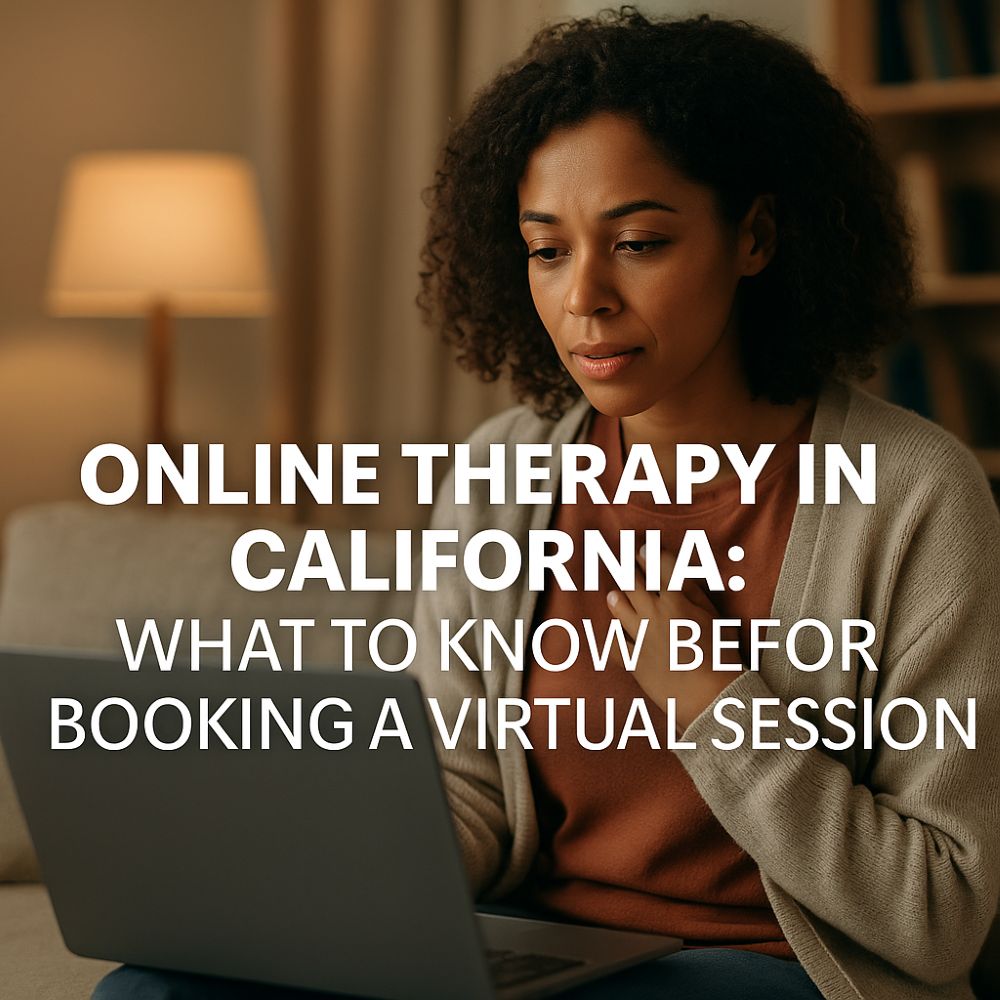Finding the Right Therapy Fit: Comparing Personalized Care and Online Platforms
Feeling overwhelmed by therapy choices? You’re not alone. Navigating between the personalized care of a private practice therapist and the convenience of platforms like Thriveworks and BetterHelp doesn’t have to feel so daunting. With a clear guide to walk you through the options, you can eliminate the guesswork and feel empowered. Yes, both options offer distinct benefits, but the best fit depends on what works for you—your needs, budget, location, and therapy goals. In this guide, we’ll break it all down for you, making the decision-making process simple and stress-free. By the end, you’ll feel confident choosing the best option for your relationship, mental health, or personal development.
1. Private Practice vs. Large Therapy Platforms: A Side-by-Side Comparison
Private Practice: A Personalized, Local Therapy Option
Private practice therapists work independently, offering highly personalized care. Many specialize in methods like Emotionally Focused Couples Therapy (EFT), Cognitive Behavioral Therapy (CBT), or trauma-focused therapies. Most also provide flexible options, such as in-person sessions or secure teletherapy from home, making it easy to find a trusted, consistent connection that fits your needs.
Large Platforms like Thriveworks and BetterHelp: Convenience at Scale
Large therapy platforms like Thriveworks and BetterHelp prioritize accessibility and flexibility, providing therapy at a larger scale. For example, Thriveworks offers in-person and telehealth sessions in California, while BetterHelp is fully online and uses automated matching to connect you with a therapist. These platforms can be ideal if you have a busy schedule, offering reduced fees and flexible options you can access anytime—even between your kiddo’s nap time or bedtime.
Which Option Is Right for You?
On the one hand, large therapy platforms like Thriveworks and BetterHelp prioritize accessibility and efficiency, but this often comes with trade-offs. Therapists on these platforms report managing heavy client loads and adhering to hefty corporate demands, such as strict session time limits and automated client-matching systems. While these features allow for faster access and broader reach for each company, they limit the therapist’s ability to provide fully personalized care, as they’re pressured to meet the needs of their organization at the possible expense of your individual needs.
On the other hand, private practice offers a more tailored approach. For example, private practice therapists set their own schedules, seeing clients at a pace that ensures they can provide thoughtful, personalized care without the burden of corporate quotas or efficiency demands. With no pressure to meet standardized guidelines, private therapists focus solely on your unique goals, fostering a deeper, more trusting relationship. The freedom embedded in having a private practice ensures that therapists can prioritize your needs above all else, creating a space that provides you with personalized care that supports your personal development.
Learn More About Steve and InTouch Family Counseling Here
2. Personal Connection: Building Trust with Your Therapist
Therapy effectiveness often hinges on the strength of the therapist-client relationship. A strong, trusting bond helps make sessions more effective and comfortable. Here’s how private practices and large therapy platforms approach this key factor:
- In Private Practice: Your therapist provides consistent, one-on-one sessions, fostering a reliable, trusting relationship. Many also offer free clarity calls or initial consultations to ensure a good match before you commit, helping you find someone you feel truly aligned and connected with.
- On Large Platforms like Thriveworks and BetterHelp: Platforms can provide quick access to therapy but do not guarantee continuity with the same therapist, particularly on BetterHelp, where clients are matched through an algorithm. Former clients report that sometimes therapy feels less personal–especially when you want to have a clear choice in selecting (and keeping) your therapist for more than one session.
Which Option is Right for You? If building a long-term, consistent relationship with a therapist is important for you, a private practice may be better suited. Large platforms work best for those prioritizing flexible access over a consistent therapist relationship. However, your desire for personal, human connection may be missing. In October 2024, Thriveworks acquired Synchronous, a company with an AI coaching bot named Karla to support patients between therapy sessions.
Ready to experience personalized, one-on-one support? Schedule a free clarity call with my private practice today and take the first step toward meaningful change.
3. Accessibility and Flexibility: How Therapy Can Fit Your Schedule
Life is busy. The option that best fits your schedule and access needs can make therapy feel like a natural, sustainable part of your short-term routine.
- In Private Practice: Most therapists offer both in-person and online sessions, offering flexibility with your busy schedule. If you are busy and short on time, you may want a therapist who can provide you with a consistent time and setting for therapy. If you need flexibility, most therapists can switch between online and in-person sessions, helping ease your demanding schedule.
- On Large Platforms like Thriveworks and BetterHelp: Thriveworks offers both in-person and online options, allowing clients to switch between them as needed. BetterHelp’s online-only model makes accessing therapy as simple as logging in from any location, anytime. These options are excellent for those who are not opposed to working with different therapists each time because they need therapy that works around their demanding schedule.
Which Option is Right for You? Whether you value a stable, regular routine with a trusted therapist or a flexible schedule, a private practice therapist may be your best option. Large platforms excel in flexibility, with options like app-based therapy and multiple locations for clients who prioritize accessibility.
4. Cost and Payment Options: What Works Best for Your Budget?
Cost is a significant factor for most clients, and payment options vary greatly between private practices and large platforms. Here’s how they stack up:
- In Private Practice: Therapy costs can vary based on the therapist’s experience, location, and specialization. Many private practice therapists accept insurance and may offer sliding-scale fees for those who need them, making therapy more accessible. If you have specific financial or insurance needs (HMO vs PPO), this flexibility can make private practice an affordable choice. More about fees.
- On Large Platforms: Thriveworks accepts a wide range of insurance providers, making therapy more affordable. BetterHelp operates on a flat weekly subscription model, which includes unlimited messaging and a set number of live sessions. While this can be budget-friendly, it may not cover the in-depth, in-person sessions that you might desire.
Which Option is Right for You? Private practice therapy may be more affordable for those with insurance, while BetterHelp’s subscription model appeals to clients seeking a cost-effective, entirely online solution.
5. Therapist Expertise and Specialization: Matching Your Needs
Your mental health journey is unique, and finding a therapist with the right expertise can make a meaningful difference in your progress.
- In Private Practice: Most therapists in private practice specialize in specific issues like trauma, couples counseling, or ADHD therapy for children or adults. This expertise, which might include approaches like emotionally focused therapy (EFT) for couples, is beneficial if you’re looking for a specific model or have clear therapy goals. A private practice therapist allows you to work with someone deeply aligned with your specific needs.
- On Large Platforms like Thriveworks and BetterHelp: While large platforms offer a broad range of therapy types, they may not always have the depth of specialization that private practices offer. Although both platforms connect you to a licensed mental health provider, getting you matched may require several attempts to find someone with the desired expertise you’re looking for.
Which Option Is Right for You? Private practice therapists often provide more specialized care for specific mental health needs, making them ideal when you want clear, specific, and targeted results like better communication, deeper intimacy, or a reduction in parent/child conflict. Large platforms are better suited for general therapy support.
6. The Therapy Experience: Finding the Right Environment
Therapy should be a space where you feel comfortable, safe, and accepted–a “no judgment” zone. Here’s how private practices and large platforms compare in terms of the therapeutic environment:
- In Private Practice: Therapists have the freedom to create a unique, supportive environment, whether in person or online. In my practice, for example, I strive to foster a secure and inviting space, particularly for couples looking to reconnect and refine trust, openness, and attunement. Many clients appreciate the level of empathy, understanding, and acceptance they experience in my private practice.
- On Large Platforms: Thriveworks and BetterHelp prioritize accessibility and structure, offering digital platforms where clients can log in from home. While these options are convenient, they may not offer the same personal touch as a private practice, in-person office.
Which Option is Right for You? If a comfortable, personalized space (online or in person) matters to you, a private practice therapist may provide the experience you’re looking for. For clients focused on convenience and accessibility, a large platform offers flexible online options.
Frequently Asked Questions About Choosing Therapy Options
1. What factors should I consider when choosing between in-person and online therapy?
When deciding between in-person and online therapy, consider your schedule, comfort level, and therapy goals. In-person therapy may provide a more personal connection, while online options offer flexibility and convenience, especially for busy individuals or those in remote areas.
2. Can therapy on large platforms provide the same level of privacy as private practice?
Yes, both private practice and large platforms adhere to strict confidentiality standards. However, private practices may offer more direct control over your personal information, while platforms store data within their digital infrastructure.
3. How do therapy approaches differ between private practice and large platforms?
Private practice therapists often specialize in specific approaches like trauma-focused therapy or emotionally focused therapy (EFT). Large platforms offer a range of general therapy options but may lack the same depth of specialization, depending on the therapist you are matched with.
4. Are there limits to how often I can meet with a therapist on large platforms?
Yes, platforms like BetterHelp typically operate on subscription models with predefined session limits or messaging allowances. Private practice therapists may offer more flexibility to adjust session frequency based on your needs.
Final Thoughts on Choosing the Right Therapy Model for You
Both private practice and large therapy platforms like Thriveworks and BetterHelp can provide you with valuable benefits. Here’s a quick recap:
- Private Practice: Ideal if you value a consistent relationship with a specialized therapist who offers in-depth, personalized and human care.
- Large Platforms: Perfect for those who prioritize accessibility, convenience, and online flexibility–and a pre-programmed chatbot to communicate with between sessions.
Ultimately, therapy is an investment in your well-being, whether it’s with a private practice therapist or a platform provider. Choose the option that feels right and helps you achieve the mental health support you need to thrive.
Therapy is about finding someone who truly gets your journey, offering the right support, expertise, and space for your personal development. With thoughtful consideration, you’ll find a therapy model that brings you closer to the life you want to build.
More Links To Help You
- ADHD Counestling- https://intouchfamilycounseling.com/adhd-counseling-tustin-ca/
- Couples Therapy- https://intouchfamilycounseling.com/marriage-couples-therapy-tustin-ca/
- Individual Therapy- https://intouchfamilycounseling.com/individual-therapy-tustin-ca/
- Marriage Counseling- https://intouchfamilycounseling.com/marriage-counseling-tustin-ca/
- Premarital Counseling- https://intouchfamilycounseling.com/premarital-counseling-tustin-ca/







